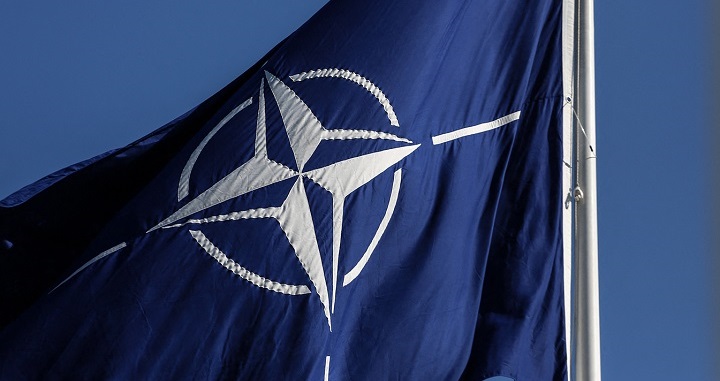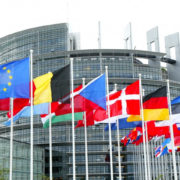
The US-NATO-Ukraine-Russia War is “a riddle wrapped in a mystery inside an enigma” to borrow Churchill’s October 1939 comment on the staggered invasions of Poland the previous month – by Germany followed weeks later by Russia. For western propaganda however to explain the war is “easy as pie.” The big bad bear got hungry and bit off some Ukraine.
With so much bias and obfuscation in almost all government statements and media reports on the war in Ukraine a look back at earlier wars in Korea and Vietnam may offer some perspective. For example, by 1953, the year of the Korean truce, Washington was insisting to Paris that French forces must stay the course in its Vietnam War, in which the stakes were regional if not global, since no foreseeable truce line could stop the communists from taking power in Vietnam and endangering the region.
On the other hand, Washington said, if at the start in June 1950 the Korean War was of global magnitude, by 1953 it was contained thus negotiable. After two years’ active stalemate a truce line now divided the country and thus limited the wider spread of communism.
Both wars of course had an anti-China dimension, and that is why in October 1950 Washington sent the counter-attacking UN forces north across the thirty-eighth parallel, capturing Pyongyang and aiming for the Chinese border, a questionable move that provoked the Chinese to enter the war in November.
What light then do these two wars shed on the current fighting on Ukrainian territory between the US-NATO and Russia? I have discussed the (three-year) Korean War and the (thirty-year) Vietnam War in my book Twilight of the Empires. Here I offer a few tentative thoughts.
Is the Ukraine a decades-long war of world historical significance or a “splendid little war” of limited duration as Sec’y of State John Hay called the Spanish-American war? According to French President Macron’s diplomatic advisor Emmanuel Bonne: “What we need most is Chinese abstention . . . We need them to understand that Ukraine is a conflict of global magnitude and that we cannot afford Ukraine to lose for reasons of principle, but also for reasons which are very operational” (here). This was almost word for word the way Washington appealed to Paris in 1953-54 to keep fighting in Vietnam in order to stop the spread of Chinese Communism.
In April 1954, the month before France’s dramatic defeat at Dien Bien Phu, President Eisenhower came up with the “domino” principle. Should France give up the fight, he warned, the Communists could ultimately dominate Asia and maybe the world, and moreover US troops in the end would have to be sent. By this time Washington was already providing eighty per cent of France’s war budget.
But in France a war-weary public and leading political figures were not convinced; Paris answered back to Washington: last year (1953) you negotiated a truce in Korea, why we can’t we do the same? Washington responded that the division of Korea could contain communism but there was little chance for resolving the conflict in Vietnam with a truce and a divided country. The fall of Vietnam would entail serious global consequences. Washington is offering similar predictions about the war in Ukraine and dismissing dissenting voices and calls for negotiations.
Alas, long term outcomes differ from tactical calculations: history is patient and the “best laid plans . . .” reveal human fallibility. The US defeat in Vietnam was a major reason Washington reached an entente with the Chinese Communists. The long-term consequences of the current war may well confound tactical calculations too.
One of the curiouser aspects of the war is how rarely NATO, a principal participant, is analyzed in western reporting; for this there are various reasons. The communique from the G-7 meeting in Hiroshima, for instance, omits the name entirely.
NATO’s low rhetorical profile is designed to sustain the illusion that a David is in combat with a Goliath rather than Washington-NATO with Moscow. Minimal reference also helps to obscure the reality that NATO is essentially an American not a European organization, given the incomplete sovereignty and autonomy of the West and East European governments.
Above all, it is necessary to avoid mention of NATO’s role in various bombing campaigns starting in 1999 with Yugoslavia, without UN authorization, and following up with attacks on the people of Iraq, Libya, and Afghanistan. The recent Koran burning in NATO aspirant Sweden and founding member Denmark will not improve NATO’s image in the Umma.
The Middle East bombings were conducted on dodgy authority and scored high levels of death and destruction, but NATO was never held to account nor has it paid reparations to its victims. Ignoring this record of invasions is vital to maintaining NATO’s claim to be a defensive organization. Acknowledging this record could seem to justify Russia’s February 2022 invasion of Ukraine as pre-emptive self-defense (the Iraq model). Moscow says that NATO’s threat provoked its action. But if the west scoffs at whatever case Moscow pleads, the global south (three-fourths of the world) either tilts toward Moscow or refuses to buy the American story-line.
Membership in NATO as Ukraine’s main foreign policy objective was enshrined in its Constitution in 2018 by vote of Parliament and signed into law in 2019 by President Poroshenko. NATO has been building and training Ukraine’s armed forces for many years. A detailed historical analysis by Grey Anderson appeared in New Left Review (March-June 2023) titled “Weapon of Power, Matrix of Management,” meaning that NATO is both an instrument of war and a wide market for the arms industry.
Recently NATO has sought to widen its “presence” (the preferred term for military stations and operations) in Asia to exert pressure on China and pull Japan, South Korea, and the Philippines into its net. A prospective “office” in Japan has been put on hold as the Japanese are so far not willing to take such risky steps against China (here).
Moreover, Paris opposed NATO’s extending its mission into Asia. But that could change. US forces in Taiwan and major arms sales for Taiwan suggest a future tied to NATO, even though Taiwan is considered part of one China. It seems fair to say that China’s backing Russia in its current war with NATO has everything to do with NATO’s ambition to expand into Asia.
If they want to maintain peace in their region, it would behoove China’s neighbors to remind Washington that they recognize Taiwan as part of one China. A firm publicly reiterated stance might just deter Washington from augmenting its “presence” to confront its nemesis in Asia by reviving and re-fighting the Korean and Vietnam Wars.





